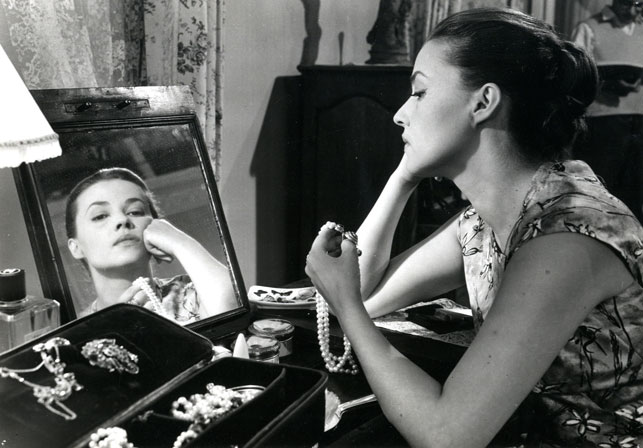Occasional musings about time spent in museums, galleries, theatres, cinemas and other dark settings ..
Friday 26 May 2017
Pourquoi J'Aime 'Les Amants'
It has Jeanne Moreau.
It has the most exquisite andante from Brahms String Sextet.
It has extended sequences that involve both Jeanne Moreau and the (exquisite) andante from Brahms string sextet.
It is directed by one of the most fabulous French film makers, Louis Malle, and probably ranks alongside Smiles Of A Summer Night as amongst the most swooning meditations on romantic love (albeit on this occasion without Russian roulette).
Did I mention, it has Jeanne Moreau.
It has a sequence in which a very a la mode Parisienne wakes up with a groomed daschund already in the crook of her arm.
It has the most extraordinary sequence of laughter in any film in which the laughter is both such a release and a realisation of how much laughter has simply been missing for so long that it is delirious and painful in equal measure.
It is a beautifully observed portrait of Paris and the provinces with all the droll superficiality that implies.
But above all it is the utterly rhapsodic and all encompassing sequence when the lovers wander at night from the well tended parterre into the wild garden (in a way that Andrew Marvell would have recognised and applauded) that elevates this beyond being a simply fine film into something quite extraordinary.
In her white nightdress and flowing hair, Jeanne is back to a wildness rather than the primped and pristine figure of the first hour of the film.
The lovers free fish trapped in a cage by Jeanne's husband as they cross a stream before gliding without oars on a boat across the lake because 'there's no resisting happiness'.
And it's that sense of complete mutual submission and lack of constraint that is captured so perfectly by Malle and which goes into complete overdrive with the extraordinarily well matched Brahms which in itself can create a knee tremor at fifty paces.
The tropes of folk tales involving lovers meeting at night are then completed by the cockerel crowing in the dawn. At this point the lover should either vanish or, if you're particularly unlucky, turn out to have been dead all along.
In this case neither. Instead there is a wonderfully observed sequence in which love and doubt intermingle as the mundane and the quotidian intervene to ever greater extent.
And the beauty of it is that Malle is sufficiently brave to end the film by showing both. Akin to The Dolls House, Jeanne may go, and she may well go alone, but that delirious night is the experience - for which she has absolutely no regret - that allows her to do so.
Some audiences at the time (1958) were scandalised. Now all we see is the most delirious account of two people meeting and saying to each other: 'I've known you forever'.
Subscribe to:
Posts (Atom)

